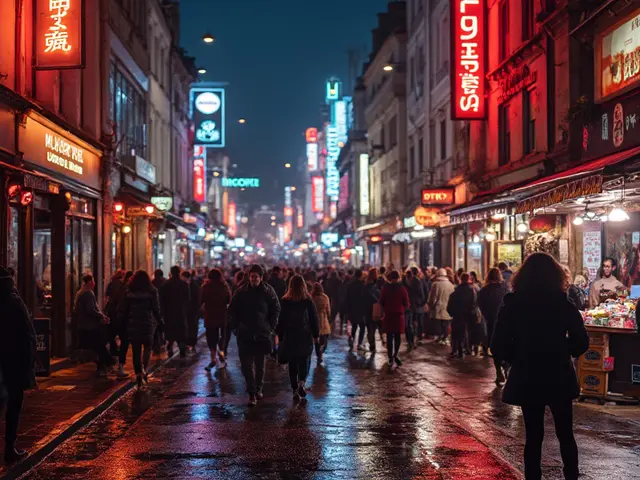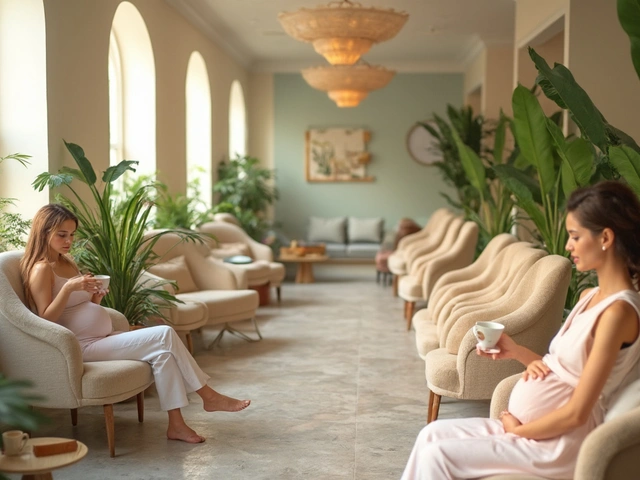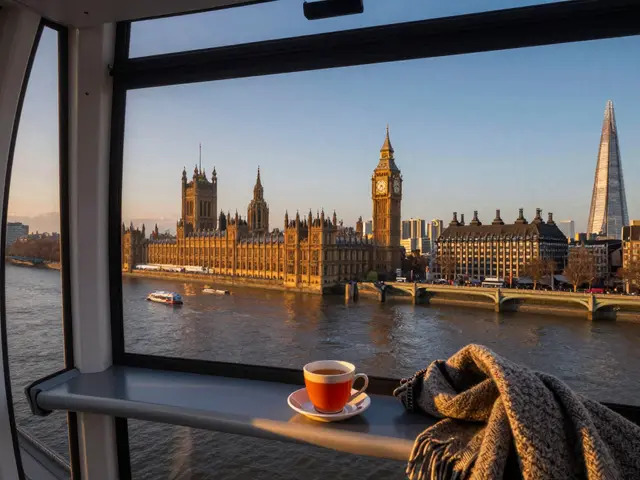In London, when someone says, “Let’s hit the club,” chances are good they’re talking about the Ministry of Sound. Sitting right in the heart of Elephant & Castle, surrounded by the hum of buses, fried chicken joints, and the Tube roaring past, this isn’t some glitzy West End spot. It’s a former bus garage that decided to flip the script on UK club culture — and the whole city leans in when Ministry opens its doors for the weekend.
People often forget just how much of an underdog story this is. Ministry of Sound didn’t start with waves of hype or big money backers. Instead, it launched in 1991 on a backstreet with little more than a world-class sound system and a stubborn commitment to bringing US house music to London – well before it hit the mainstream in the UK. If you were clubbing in the '90s, you’ll remember dodging traffic on Gaunt Street just for a chance to queue up outside, never knowing who might end up playing until you stepped inside.
- From Elephant & Castle to Global Fame
- Sound and Lights: The Tech Behind the Hype
- Moments That Defined the Club
- Ministry’s Impact on London’s Music Scene
- Tips for Experiencing Ministry Like a Local
- Beyond the Dancefloor: Lasting Cultural Legacy
From Elephant & Castle to Global Fame
Back when the area around Elephant & Castle was better known for concrete towers than a thriving nightlife, Ministry of Sound popped up in 1991 inside a converted bus garage. It wasn’t near the trendy bits of Shoreditch or Camden—it was deep South London, just off Gaunt Street. The founders, inspired by clubs like New York’s Paradise Garage, wanted a dedicated space for dance music, especially house and garage, when most local venues were more about dancefloors than quality sound.
The first thing you’d notice was the sound system. Nobody had heard anything like it in London before. They dropped serious cash on custom-built speakers, turning Ministry into the UK’s first club purpose-built for sound, not just for drinks. DJs started coming over from the US, and suddenly, Ministry was the place to hear real-deal house beats—long before big club brands were a thing in the city.
It was a gamble at first. Elephant & Castle wasn’t a music destination yet. But that almost made it better. There was a rough edge to getting there—late-night buses, dodgy kebab shops, a sense that something underground was happening. Once inside, people from all parts of London mixed, and nights went until sunrise.
Fast forward to now, and Ministry isn’t just known in London. Their brand has exploded—there’s a record label, international tours, even Ministry-themed fitness classes. Still, that old bus garage vibe sticks around, right in the bones of the place. The club’s success also helped kick off the transformation of Elephant & Castle, turning it from a forgotten zone to an area eyed by developers and artists alike.
| Year | Major Milestone |
|---|---|
| 1991 | Ministry of Sound opens, inspired by NYC’s Paradise Garage |
| 1996 | Launch of Ministry of Sound record label |
| 2011 | Celebration of 20th anniversary |
| 2016 | Saved from redevelopment after campaign with local community |
| 2025 | Draws over a million clubgoers and event fans annually |
What really sets Ministry apart is its impact outside London. International students in London swap stories of wild nights out, DJs count it as a rite of passage, and it’s still a place where global music trends land first. For anyone searching for a true London nightclub experience, Ministry is about as close as you’ll get to a legend that’s still alive and kicking.
Sound and Lights: The Tech Behind the Hype
Everyone raves about Ministry of Sound’s nights, but the real secret sauce is the tech setup. There’s a reason clubbers from all over London and the world pick Ministry—and it’s not just the lineups. The sound system here isn’t average; it’s legendary. Right from the start, Ministry invested in a US-imported Richard Long & Associates (RLA) sound system. Richard Long, for those who don’t know, built the systems for New York’s Paradise Garage, and his kit at Ministry set new UK standards. The main room was designed around the speakers, not the other way round. What does that mean for you? You feel the music—literally, from your head down to your trainers.
But Ministry didn’t stop there. Over the years, they’ve poured serious cash into topping up their audio arsenal. Today, their main room uses a custom-built 64-speaker setup designed with Dolby Atmos tech. When the bass drops, you don’t just hear it, the whole room vibrates. DJs get crystal-clear booth monitors so the mix always hits right, which is why famous selectors like Pete Tong and Carl Cox call it their London home base.
The visuals aren’t an afterthought either. The light shows at Ministry put some London theatres to shame. The venue works with top-notch lighting crews, mixing classic strobes and lasers with newer LED rigs that sync up to both the beat and the mood. On big nights, you’ll see moving light sculptures and programmable panels flashing to the rhythm. The DJ booth now includes LED displays so even if you’re lost in the crowd, you never miss the action.
- If you’re heading to Ministry for the first time, don’t just stand by the bar. Find a spot right in the middle of the dancefloor for the wildest surround sound.
- Watch the way lights and sound work together—especially during headline sets. There’s nothing else like this in London nightlife.
- If you love gear, check out Ministry’s daytime tours when they run—sometimes you can see the tech up close and get a real feel for what makes the place tick.
All that effort pays off. Whether you’re dropping in from Brixton, Camden, or Shoreditch, Ministry of Sound’s tech makes every Friday and Saturday feel like a headline festival—without the mud or dodgy Portaloo queues.
Moments That Defined the Club
Everyone in London’s club scene has a story about Ministry of Sound, but a few nights ended up shaping the place into a legend. The grand opening in 1991 didn’t pull a big celebrity guest list—a lot of folks showed up just to hear the sound system, which was head and shoulders above anything else in the UK back then. They brought in American DJ Larry Levan for one of his last ever sets outside the US, setting the tone for what the club stood for: pro sound, proper vibe, and fearless bookings.
Fast-forward to the late 90s, and Ministry shook things up again with the release of their first compilation CD. Nobody could miss those iconic album covers in every branch of HMV on Oxford Street and even in petrol stations up and down the M25. That laid down the path for their brand to become a household name, not just another club.
Big nights kept coming. When Paul Oakenfold played his “Perfecto” residency or when Fatboy Slim dropped in for a surprise set, the queue snaked past the arches and even the night bus drivers tried to sneak in. A major tech milestone happened in 2016, when the club invested over £500,000 in upgrading their sound and light rigs. Suddenly, the Ministry offered an in-your-face experience that rivalled festivals and rival clubs both in London and overseas.
- The opening night in 1991 brought London its first club dedicated to US house music.
- 1996 marked their chart-topping foray into music albums: their first compilation went platinum in the UK.
- In 2008, Ministry hosted an all-night BBC Radio 1 Essential Mix live broadcast, putting it on the national music map even more firmly.
- By 2016, technical upgrades made Ministry’s sound system a reference point for audio engineers across Europe.
| Year | Milestone | Impact |
|---|---|---|
| 1991 | Club opens with top-tier US DJs | Introduced international dance music to London |
| 1996 | First Ministry compilation CD released | Expanded brand nationwide |
| 2008 | BBC Radio 1 Essential Mix live | Broadcasted club culture to the whole UK |
| 2016 | Major sound & lighting upgrade | Set the club apart among London nightclub competition |
It’s worth remembering, Ministry didn’t just chase big names—they set a standard. Those key moments brought people from across London and the world, each time proving the club could adapt and keep setting the bar for what a proper night out should feel like.
Ministry’s Impact on London’s Music Scene
Ask anyone who really knows London nightlife, and they’ll agree—Ministry of Sound turned the city’s club culture upside down. Before Ministry showed up, most UK clubs played it safe with chart hits or sticky floor pop. Ministry just went for it with a no-nonsense focus on sound, booking DJs like Larry Levan and David Morales when hardly anyone else in London dared take a punt on deep house or tough US garage. If you went out in London in the ‘90s, odds are you left a little hearing in that main room.
The venue set a new standard for audio with its custom-built sound system. Back then, it was louder and cleaner than anything else—making it a magnet for DJs, music producers, and ravers. Some local DJs got their first breaks at Ministry’s legendary Friday nights, before blowing up on the national grid. To put it in numbers—the club has hosted more than 2,000 headline acts and reportedly sees over 300,000 punters through the doors every year. That’s a serious chunk of the London crowd wanting a proper night out.
But Ministry’s influence doesn’t stop at the front door. The Ministry of Sound record label, launched just a couple of years after the club opened, has scored over 70 UK number one singles since 1993. Any idea how rare that is for a club-linked brand? Their compilations practically introduced mainstream Britain to dance anthems—if you grabbed a Ministry CD from HMV on Oxford Street in the 2000s, you know exactly what I mean.
It’s that crossover from club nights to music charts and radio playlists that really changed the game for the UK. Acts like Example, London Grammar, and Eric Prydz owe a lot to Ministry backing their singles before the rest of the industry woke up. Even today, promoters across London copy the blueprint—focus on beats, book international talent, let the music sell itself. Here’s a snapshot of how the London nightclub powerhouse has shaped the city's scene:
- Sunday Sessions and Milk! nights turned midweek raving into a thing across London.
- Homegrown DJs and producers used Ministry as a launchpad—think Judge Jules and Tall Paul.
- Live-streams and digital events long before TikTok or Boiler Room made it cool.
- Brought major US and European house and techno acts to London first, before festivals picked them up.
Let’s break down some actual stats:
| Ministry of Sound Milestone | Year/Number |
|---|---|
| First opened | 1991 |
| Headline DJs hosted (est.) | 2,000+ |
| Annual club visitors | 300,000+ |
| UK number one singles via MoS label | 70+ |
The main takeaway: Ministry didn’t just ride London’s music wave—it set the tempo and pushed the whole UK scene along with it. Every time you walk past the club, you’re looking at a building that changed what British nightlife means.
Tips for Experiencing Ministry Like a Local
If you want to get the most out of Ministry of Sound, skip the rookie moves. First: arrive early, especially if you’re after nights like The Gallery or one of those warehouse-style all-nighters. Locals know the queue snakes down the pavements after 11pm, and even the guestlist moves slow when the mood is electric.
Another tip? Dress however you feel comfortable. Ministry doesn’t fuss over strict dress codes; trainers and tees are normal. If you spot people in full rave gear or classic 90s bucket hats, just roll with it—some nights, that’s half the fun. But leave your big coats at home, cloakroom space is tight and the queue for it can be longer than the bar.
Booking tickets online saves you time and cash. Door prices often shoot up close to midnight and sell-outs are common, especially for headliners. Super important: always check the lineup on the Ministry of Sound website before you book—big DJs like Example, Hannah Wants, or DJ EZ can sell out weeks ahead. If you want a proper experience, aim for one of the main rooms where the London nightclub built its name—The Box, with its surround sound, is the one locals brag about.
There’s more to surviving the night than just raving. Hydration stations are dotted around but bring a reusable bottle. Prices for drinks in central London sting, and Ministry is no exception. Most locals hit a nearby Tesco Express or Sainsbury’s before arrival for snacks and water. If you need to refuel, the “chicken shop run” post-club—Morley’s on Walworth Road is open late—has practically become a tradition.
"Ministry of Sound is best when you lose yourself in the music with the regulars—it’s less about showing off and more about actually dancing," said DJ Goldie in an interview with Time Out London.
Keep in mind, the venue is cashless. Cards only, so don’t get stuck in a queue with just notes. And Southwark cops are strict on noise and loitering—once you’re out, you’re out, so plan that Uber ahead. Neighbouring stations—Elephant & Castle and Borough—run all-night buses, and the Northern Line is a lifesaver after 24-hour parties.
| Tip | Why It Matters |
|---|---|
| Book tickets online | Lower prices and avoid sell-out nights |
| Arrive before 11pm | Shorter entry queues, better spots on the dancefloor |
| Wear comfortable clothes | No strict dress code; classic London vibe |
| Bring a card | Ministry is cashless |
| Plan your trip home | Public transport is nearby; Ubers surge after closing |
Locals don’t mess about with afters either. If you’re still buzzing at 5am, find out about the secret after-parties or bar hop down to Brixton. But if you just want to soak in the vibe, sometimes a late-night kebab in South London is all you need.
Beyond the Dancefloor: Lasting Cultural Legacy
Ministry of Sound isn’t just about what happens on the dancefloor. Its impact on London goes way further. The club turned itself into a Ministry of Sound brand, reshaping British nightlife and moving into areas no one really expected back in the early ‘90s.
One of the biggest game-changers? Their record label. Ministry launched it in 1993, and it churned out huge UK hits like Eric Prydz’s “Call On Me” and the massive “Freak Like Me” by the Sugababes. Brits quickly picked up dance compilation CDs from Tesco and HMV, all with Ministry’s logo. The releases have sold over 70 million albums worldwide, making the label one of the UK’s top-selling dance music brands ever.
The club also runs Ministry of Sound Fitness, pulling in everyone from city workers needing a HIIT session to students just trying to sweat off a kebab from Borough High Street. And honestly, those LED spin rooms put the local PureGym to shame. Their community vibe is strong—they host charity nights, support Southwark youth programmes, and offer DJ workshops for local teens.
Check out the numbers and see just how deep Ministry's influence runs:
| Year | Milestone |
|---|---|
| 1991 | Club opens in Elephant & Castle |
| 1993 | Record label launches |
| 2004 | First live events outside the UK |
| 2010 | Fitness studio opens |
| 2016 | 70 million compilation albums sold worldwide |
But what really sets Ministry apart is its role in community identity. Loads of Londoners—especially from South London—see it as something to brag about. It hosts everything from raves to queer nights (Milkshake got its start here) and plays a big part in London Pride. The club even took on developers in 2013 to protect its spot when flats threatened to pop up next door, fighting hard so the music wouldn’t get shut down by noise complaints. They won, which kept those iconic sound systems rattling past 3 am for years after.
Here’s what locals and visitors can tap into beyond the club night:
- Try a Ministry-run workout that mixes dance, tunes, and proper sweat
- Pick up tickets for charity events supporting Southwark projects
- Take a DJ course and actually spin some decks in legendary booths—loads of these fill fast
- Catch special exhibitions and talks on London nightlife history at the club itself
If you’re in London, Ministry of Sound isn’t just an excuse to party—it’s a symbol that clubs can make a difference, both for tunes and for the community vibe that makes this city buzz.




